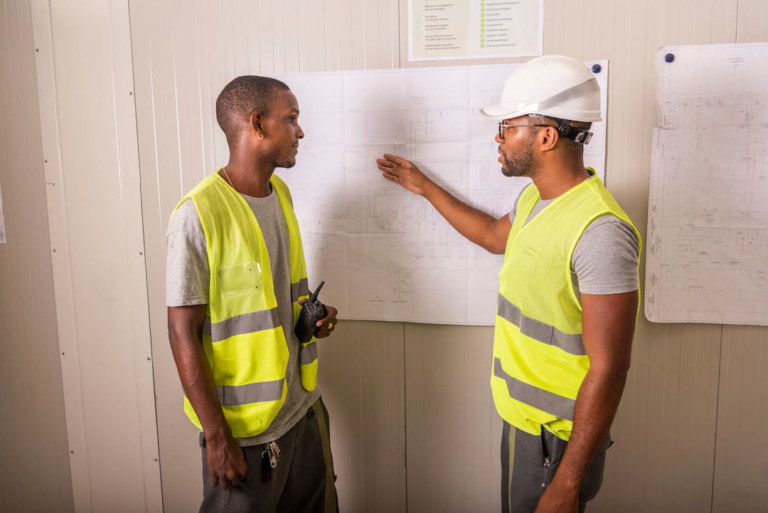To perform its function as a renewable energy producer, Albioma draws on the know-how and expertise of its local teams in all the regions in which it operates. Of the 500 people currently working for the Group, three-quarters are employed at its biomass-burning power plants in Overseas France, Mauritius and Brazil. In Overseas France, where unemployment is higher than in metropolitan France, Albioma plays a key role by actively supporting local employment. The commissioning of the Galion 2 power plant, in 2018, is a good example of the Group’s social and economic impact in Martinique.
A strong desire to employ local workers at Albioma
Most of Albioma’s employees work at its biomass-burning power plants in Overseas France. Recruitment in the Antilles and Guyana actually rose by nearly 30% between 2016 and 2017, in readiness for the commissioning of Galion 2. Located in Martinique, this power plant is the first in Overseas France to operate solely by burning biomass and bagasse. As of 31 December 2018, it employed 40 people full-time and two apprentices, 97% of whom were from Martinique. While the island still had 18% unemployment in 2017, the commissioning of the Galion 2 biomass-burning power plant had a positive social impact by recruiting and training Martinicans at all seniority levels. For Albioma, employing local people is also an asset since they are already familiar with the island’s economic and cultural context. This knowledge is precious to the Group, enabling it to play a structuring role in the agriculture and industry of all territories in which it operates.

The double challenge of job training and changes in skill requirements
As Albioma’s business is highly specialised, new employees rarely already have proven experience in our industry. In response, the Group has set up special technical programmes at all its power plants to enable new employees to learn the skills they need to operate and maintain the facilities. Thirty-three employees, nine of whom were job-seekers, have been trained in the Personal Operational Preparation for Employment training programme when they began work at the Galion 2 plant. The training, which lasts 350 hours, consists of several modules on a range of subjects including thermodynamics, aeraulics (the study of air flows), hydraulics, electricity or thermal machines. It is interspersed with power-plant visits to compare theory with practice and has also been followed for former employees wanting to perfect their knowledge in response to the present career conversions demanded by the energy transition. This desire for training and support can also be found inside the Group. In 2018, each employee received 26 hours of training, and the number of trainees, International Volunteers in the Enterprise (VIE) and work-study students represented 4% of Albioma’s workforce.
An activity rooted in the local ecosystem
Albioma’s unique partnership with the sugar industry is another factor in local economic and social dynamism. It is based on a sustainable model — supplying the power plants with bagasse in return for supplying the sugar mills with steam and electricity — that gives these refiners a decisive competitive edge. Outside the sugar campaigns, the Group is also seeking to use other locally-available sources of biomass. As well as supporting the economic and social development of Overseas France territories, all these initiatives help to accelerate their energy transition!

